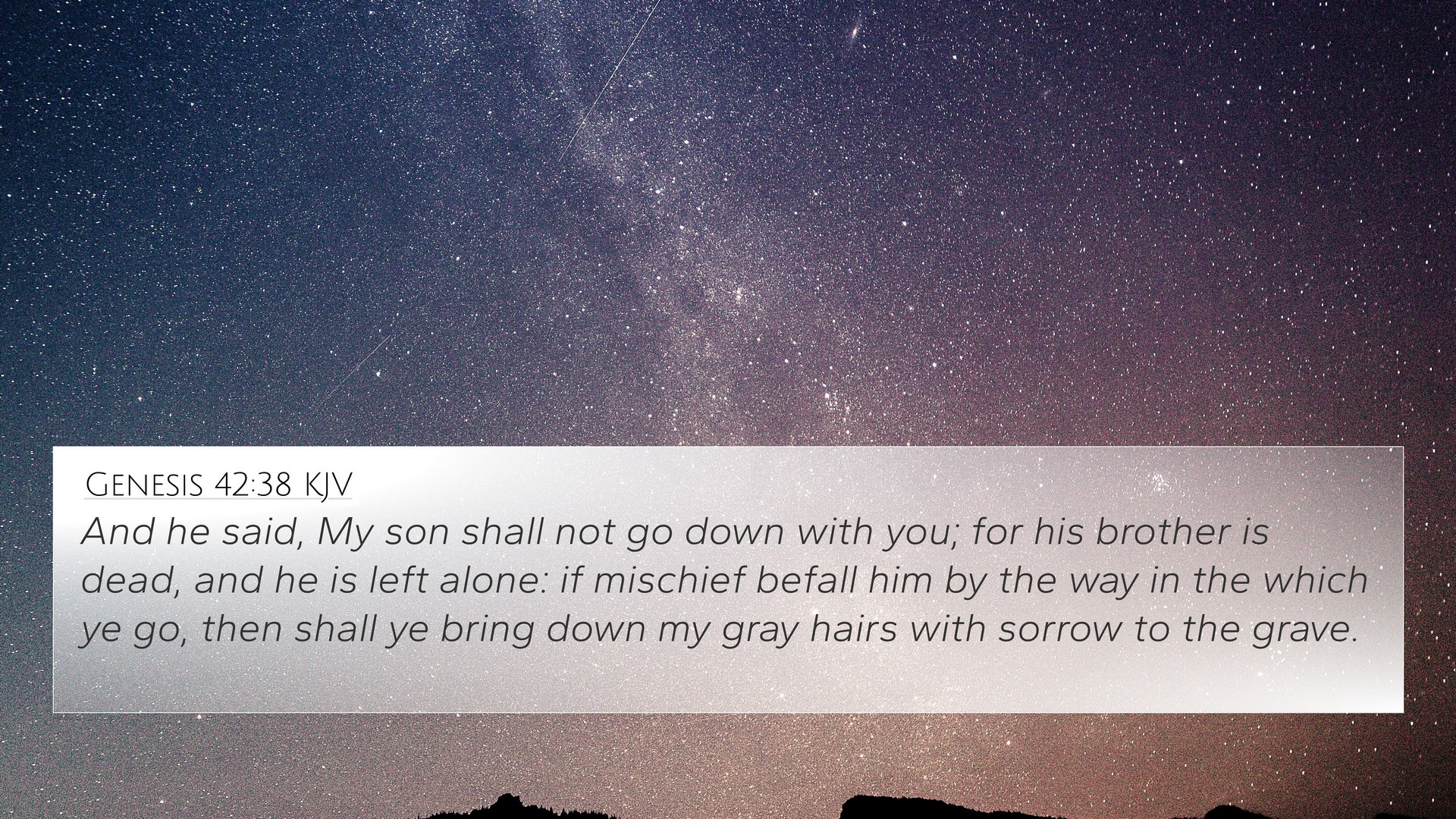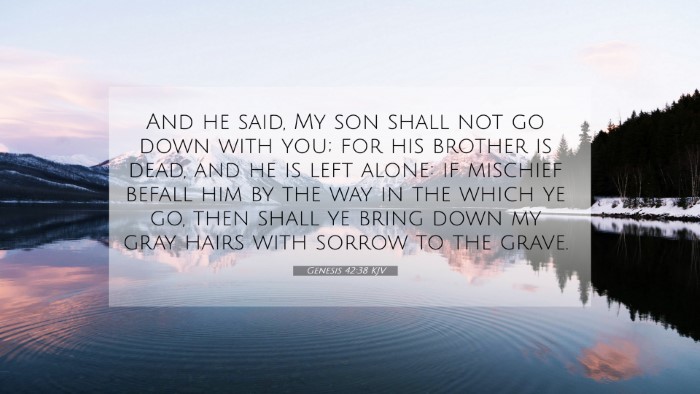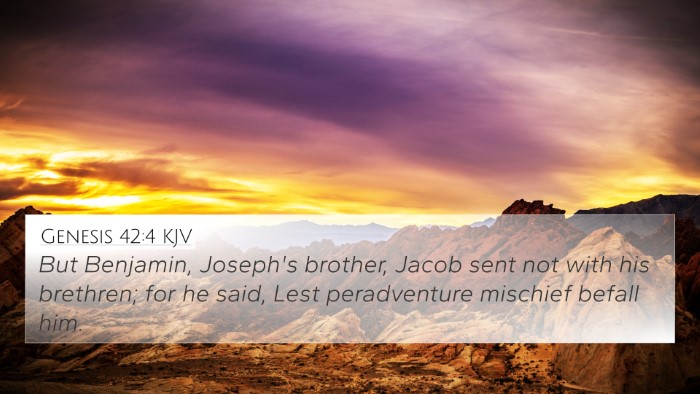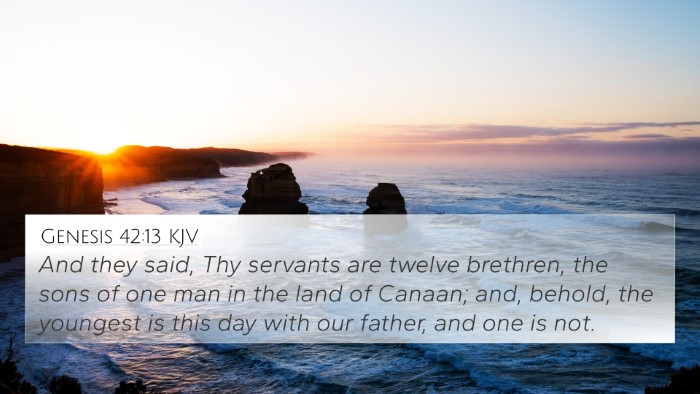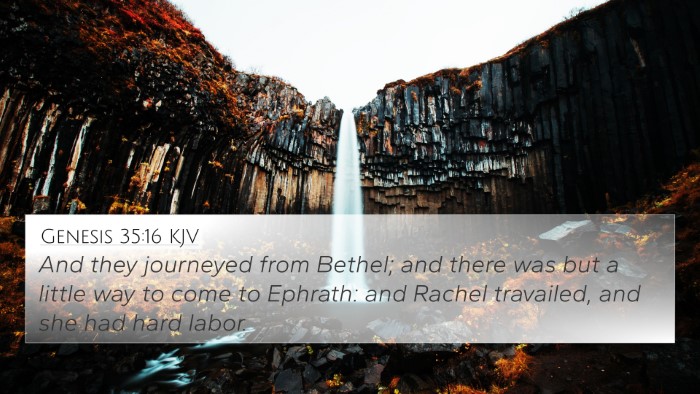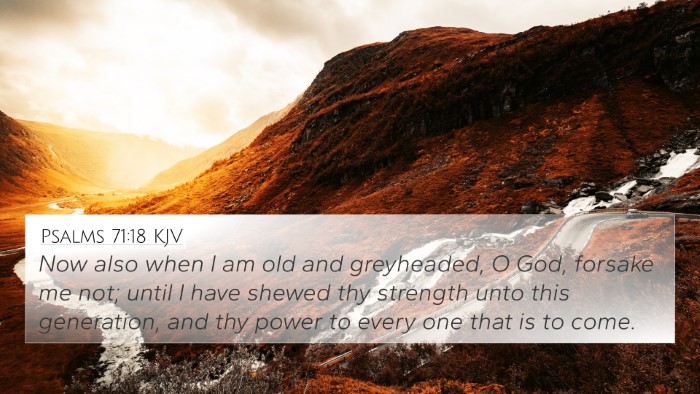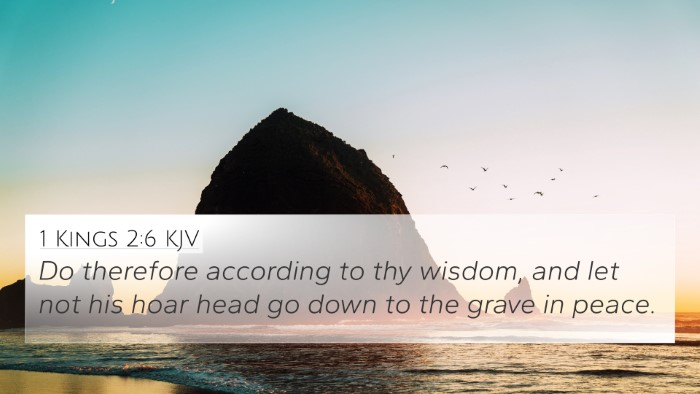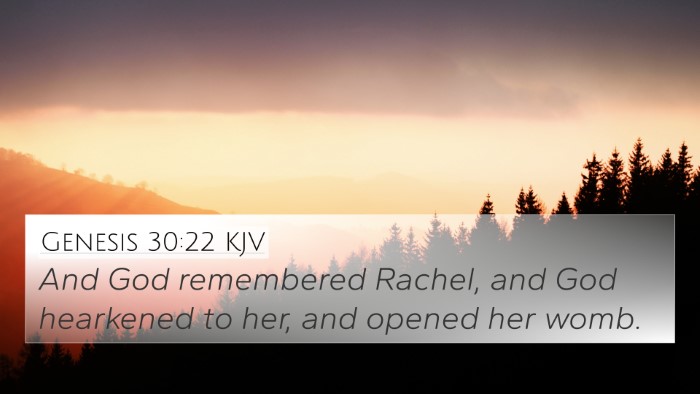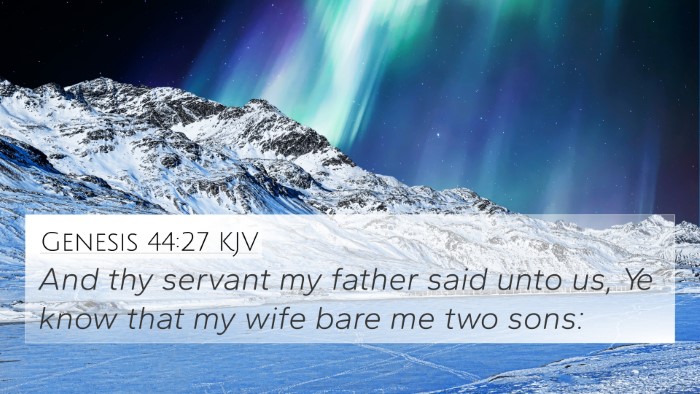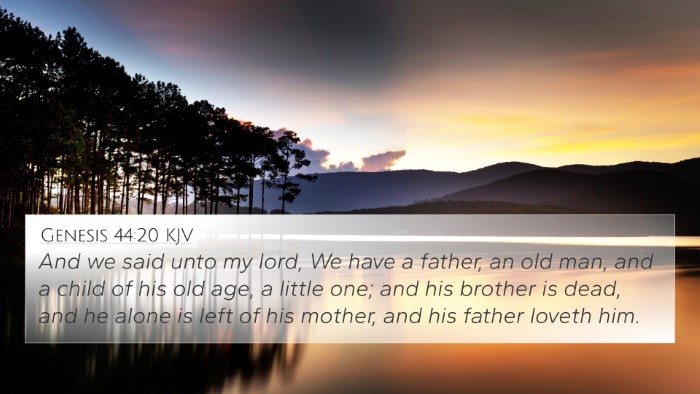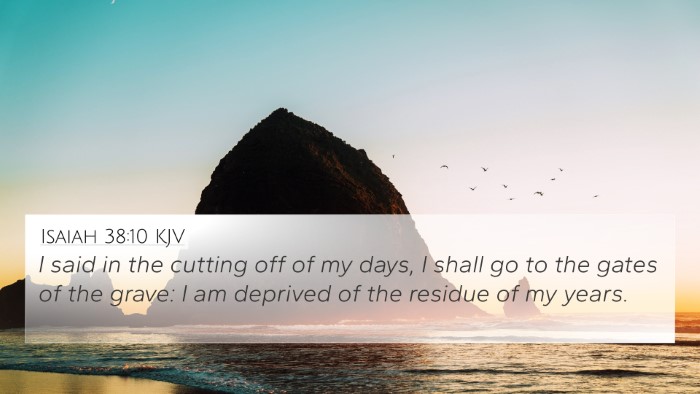Understanding Genesis 42:38
Genesis 42:38 presents a profound moment in the narrative of Jacob and his sons during a time of famine. The verse reads:
"But he said, 'My son shall not go down with you; for his brother is dead, and he alone is left. If harm should happen to him on the journey that you are to make, you would bring down my gray hairs with sorrow to Sheol.'" (Genesis 42:38, ESV)
Summarized Meaning
This verse encapsulates Jacob's deep paternal care and his fears of losing another son, reflecting his emotional turmoil and protective instincts. Jacob's statement is filled with the weight of loss, particularly concerning Joseph, and it highlights the bond he shares with Benjamin, whom he views as the last remnant of his beloved Rachel.
Commentary Insights
Exploring this verse through the lenses of public domain commentaries yields rich insights:
-
Matthew Henry:
Matthew Henry emphasizes the gravity of Jacob’s affection for Benjamin, referring to him as the last remaining child of Rachel. He interprets Jacob’s refusal to allow Benjamin to join his brothers as a testament to both his fear of losing another son and his prior grief over Joseph's disappearance. This, Henry argues, reveals Jacob's spiritual struggle and the difficulties a parent's heart faces in times of worry.
-
Albert Barnes:
Barnes highlights the context of familial tension and the consequences of Joseph's sale into slavery. He suggests that Jacob's determination to keep Benjamin close stems not just from love but from a deep-seated fear that has resulted from his traumatic experiences. The emotional weight carried by Jacob illustrates the broader themes of love, loss, and dependence that permeate family dynamics.
-
Adam Clarke:
Clarke points out the metaphorical significance of Jacob's gray hairs, which symbolize wisdom and sorrow. His life experiences, marked by profound grief, lead him to be cautious and unwilling to risk more heartache. Clarke discusses how this protective instinct speaks to the deeper Christian themes of trusting God amidst uncertainty and pain.
Links to Other Bible Verses
Genesis 42:38 resonates with several other Scriptures that share similar themes of loss, protection, and family ties:
- Genesis 37:30-32: References Jacob's mourning of Joseph when he believes him to be dead.
- Genesis 44:30-31: Discusses the potential grief Jacob would face if Benjamin were lost.
- John 16:20: Illustrates the sorrow in loss but also promises joy to follow, parallel to Jacob’s themes of sorrow.
- Matthew 2:18: Reflects the theme of loss and mourning in connection to the Innocents.
- 2 Samuel 18:33: David's grief at the loss of Absalom mirrors Jacob’s despair for his sons.
- Proverbs 10:1: Highlights the sorrow that befalls a parent from foolish decisions by their children.
- Luke 15:20-24: The Parable of the Prodigal Son illustrates themes of loss and deep familial love.
Thematic Connections and Cross-Referencing
The relational dynamics illustrated in Genesis 42:38 can be examined in a broader theological context. Here are some methods for deeper analysis:
- Comparative Bible verse analysis: Compare Jacob's fear with other instances in which individuals faced loss or risk in familial contexts.
- Cross-referencing Biblical texts: Use tools like Bible concordances to trace themes of grief and love across narratives.
- Resources for Bible reference: Utilize a cross-reference Bible study guide to connect themes from Genesis to other books, specifically in terms of God's promise of redemption.
Conclusion
Genesis 42:38 serves as a compelling reminder of the emotional weight carried by those who love deeply. Through interconnected scripture and commentary, readers can gain valuable insights into the nature of parental love, fear of loss, and the overarching themes of faith throughout the Biblical narrative. The verse exemplifies the human experience of suffering intertwined with hope, reflecting the complexities found within Scripture.
